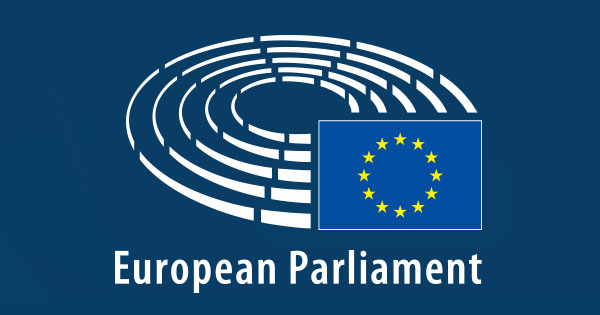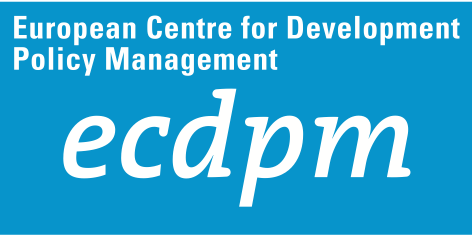Fiscal Responses to Covid-19 Pandemic and Economic Recovery Measures

The theme of the dialogue was ‘Fiscal responses to Covid-19 Pandemic and Economic Recovery Measures’. The thrust of the dialogue was that, the Covid-19 containment measures put in place by governments around the world unleashed an un-expected global lock down and an economic recession resulting from a drop in economic activity. In Uganda, the economy is expected to underperform by about 3 percentage points from the 6% growth rate that was envisaged for the FY 2019/20. While Uganda has so far done exceptionally well in containing the disease, registering many recoveries and no deaths, it has come at a huge cost. In a bid to slow down infections, economic activity was brought to a grinding halt. This has significantly reduced household incomes and government revenue. Many businesses are in distress from financial obligations as well as disruptions of supply and distribution chains. The debate at the dialogue largely focused on what should be prioritized during the Covid-19 pandemic, what the change may mean for the country’s development in the short-term and the interventions for economic recovery. […]
Why Africa’s Development Models must Change: Understanding Five Dynamic Trends

Current models used to analyse African development don’t align with the continent’s context and dynamics, and need to be overhauled. Approaches should explicitly consider the defining characteristic of African economics, namely its wide-ranging informality that lies beyond existing legal frameworks. In doing so, five trends must be considered, namely climate change, rapid urbanisation, epidemic/pandemic vulnerabilities, immense infrastructure deficits, and the lawlessness that also gives rise to violent extremism. This report first discusses current development trends in Africa and highlights how existing development theories and methodologies have not appropriately understood or addressed the tenuous nature of development on the continent. The following sections briefly analyse each of the five dynamic trends, before exploring how they interact and affect each other. After assessing the trends’ combined influence on the three continental-wide structural factors, the report concludes by suggesting a way forward for development decision-makers, policymakers and practitioners. […]
The response to the current COVID-19 crisis must make the EU more resilient

Recovery should reduce economic divergence and boost the EU’s long-term social and environmental targets, the Economic and Monetary Affairs Committee said on Thursday.
In their vote on Thursday on economic policies needed in the euro area to tackle the crisis created by the pandemic, MEPs from the Economic and Monetary Affairs Committee stressed that EU countries’ economies are strongly interconnected. An incomplete recovery in one country would therefore spill over to all the other countries and dampen economic growth everywhere.
Targeted spending decisions
MEPs also said that the governments' spending decisions following the COVID-19 crisis should focus on putting more funds into reversing climate change and boosting digitalisation. These measures should also foster social, economic and environmental resilience and include investments, especially in SMEs. At the same time, MEPs suggest that the Commission should explore how to better finance the Just Transition Fund, designed to alleviate the socio-economic effects of the transition to a climate-neutral economy. […]
New DAC Rules on Debt Relief – A Poor Measure of Donor Effort

The Development Assistance Committee (DAC) recently produced a long-awaited set of rules for how debt relief on loans should be scored as Official Development Assistance (ODA). Unfortunately, the rules suffer from a number of statistical problems: different measurement bases are mixed up even measuring the same loans; similar loans extended at different times are treated differently; loans can score as much as grants, even if partially or fully repaid; and more ODA can be scored for forgiveness than borrowers actually owe. The one unifying feature is that the new rules are very flattering for donors’ ODA figures. The DAC needs to take these rules back to the drawing board, or lose credibility.
A NEW LIFELINE FOR THE G20? THE ROLE OF AFRICAN AND EUROPEAN ACTORS IN ENHANCING ITS LEGITIMACY AND EFFECTIVENESS

The erosion of global governance has accelerated in recent years in the face of rising global inequality. The current global governance system lacks legitimacy, popular accountability, and effectiveness, and struggles to deliver solutions to key global challenges. The COVID-19 pandemic may sharpen the already existing crisis of multilateralism, or it may contribute to enhanced global cooperation beyond global health. This study investigates the role that the Group of Twenty could play in facilitating a deeper international engagement of African and European actors, for instance through a series of informal dialogues, exploring options for a reform of multilateral institutions.
Rapport 2020 sur les résultats

À la fin de l’année 2019, un vent palpable d’excitation et d’espérance soufflait sur le partenariat du Fonds mondial, qui célébrait la réussite de sa sixième Conférence de reconstitution des ressources, à Lyon.
Répondant à notre appel à accélérer le mouvement, la communauté internationale avait engagé plus de 14 milliards de dollars US, la plus grosse somme jamais levée par le Fonds mondial, et la plus importante mobilisation de fonds internationaux jamais réalisée. Nous avons ainsi pu augmenter de 23,4 % les sommes allouées aux pays pour la période triennale suivante, ce qui représentait une étape importante pour que le monde se remette sur la bonne voie dans la lutte pour éliminer les trois épidémies d’ici 2030. Ensuite, la pandémie de COVID-19 a fait irruption et tout a changé.[…]
2020 Rule of law report - Communication and country chapters

The 2020 Rule of Law Report presents a synthesis of both the rule of law situation in the EU and an assessment of the situation in each Member State.
Nigeria at 60, a story of drama and passion

As Nigeria approaches the 60th anniversary of its independence, its role as the lynchpin of African politics, economics and culture has never been stronger. Neil Ford sketches a portrait of an often turbulent but always dramatic nation.
As Nigeria approaches the 60th anniversary of its independence, its role
as the lynchpin of African politics, economics and culture has never been stronger. Neil Ford sketches a portrait of an often turbulent but always dramatic nation. […]
Advancing EU-Africa cooperation in light of the African Continental Free Trade Area

The current policy brief lays out the obstacles to both AfCFTA implementation and realisation of its full economic potential. It also explores how the EU can engage in providing targeted support and how to strengthen AfCFTA-related cooperation between Africa and the EU. The analysis and recommendations draw on a review of the literature and policy documents by the German Development Institute (DIE), the African Center for Economic Transformation (ACET) and the European Centre for Development Policy Management (ECDPM), as well as two online expert seminars on 17 and 24 June 2020.
EU Aid for Trade Progress Report 2020





